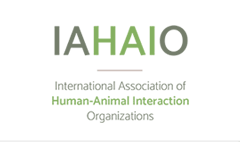Abstract
Connection to nature is associated with a range of benefits to well-being in both childhood and adulthood. Childhood experiences seem to play a big role in how adult nature connection develops. Among the many predictors of higher connection to nature, relationships with animals, including pets, likely play an important role in facilitating feelings of closeness with nature. In this paper we present two survey studies, one of children (n = 64, age = 6–16 years) and one of adults (n = 356, age = 18–80 years). Our aim was to find out if children who own pets have a higher level of connection to nature, as well as whether adults who owned pets in childhood have higher mean levels of connection to nature in adulthood than those who did not own pets. We also examined the relationship that level of engagement with childhood pets might have with nature connection. We did not find a significant difference in mean levels of connection to nature in either children or adults who own(ed) pets in childhood compared to those who did not. For adults, level of engagement with a childhood pet was associated with later nature connection; however, this relationship was not significant in children. These findings suggest that merely owning a pet in childhood might not be enough to encourage a strong connection to nature; rather, in line with the pets as ambassadors theory, active engagement and involvement in the care of childhood pets could be most important in facilitating this relationship. To build relationships with nature during formative childhood years, children could be encouraged to engage with and care for household pets.
Recommended Citation
Barrable, Alexia and Friedman, Samantha
(2024)
"Developing a Connection to Nature: The Role of Pet Ownership in Childhood,"
People and Animals: The International Journal of Research and Practice: Vol. 7
:
Iss.
1,
Article 12.
Available at:
https://docs.lib.purdue.edu/paij/vol7/iss1/12


